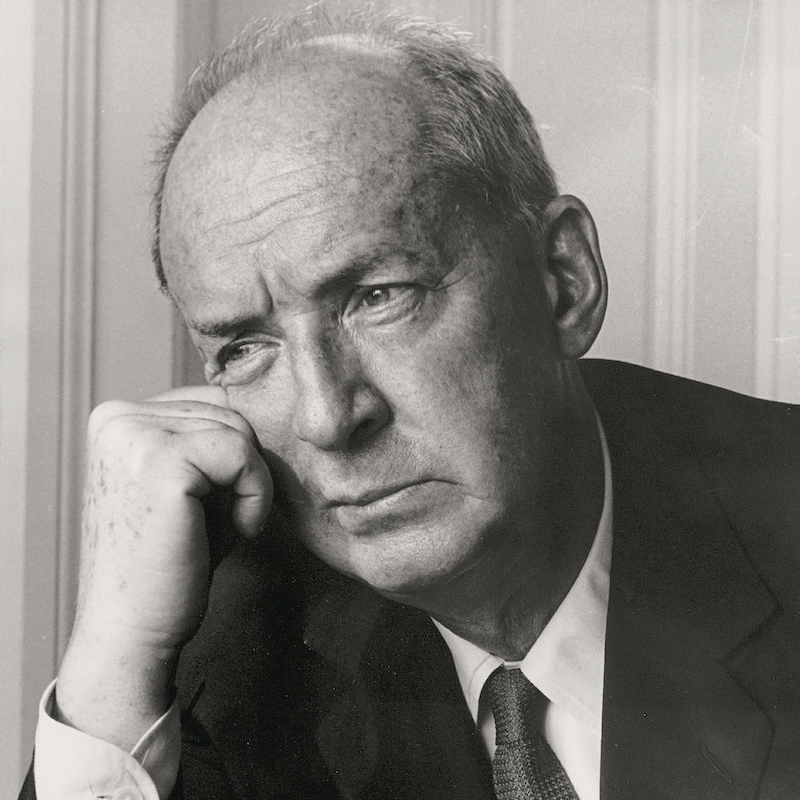Lolita (1955)
Episode #6 of the course Masterpieces of world literature and why they matter by Alisa Miller
Yesterday, we examined a man who was a stranger to those who knew him, but today, we will explore a man and his strange attachment to a girl in a book that rocked society when it was published in 1955: Lolita by Vladimir Nabokov.
Misunderstood
Many know the storyline of Lolita, as it is a cultural icon. The story has been made into movies, plays, operas, and ballets. The word “Lolita” itself has become synonymous with a young, sexually precocious girl. With all this recognition, the original story is often misunderstood as an erotic novel.
Lolita is about Humbert Humbert, a man with a predilection for young girls. He boards at the home of a woman and her twelve-year-old daughter, Dolores, whom she calls Lo. Humbert abhors the woman, but he marries her in order to stay close to Lo, or as he calls her, Lolita. Lolita’s mother dies in an accident instigated by Humbert. Humbert retrieves Lolita from summer camp, and he takes her to a hotel, where he breaks the news about her mother. Humbert and Lolita then travel the US, and during that time, Humbert has a sexual relationship with Lolita. Running out of money, Humbert takes a job and they settle down. Lolita is more interested in people her own age and is unhappy. Eventually, Lolita is taken from Humbert by another man, but he kicks Lolita out when she won’t perform certain sex acts. Lolita ends up married and pregnant by age 17. In the end, Humbert realizes the destruction he brought to Lolita via their relationship, but he still adores her as a work of art he created.
Shaping Perception
One way to read Lolita is as an unreliable account given by an unbalanced man. The book begins with a foreword that is actually a work of fiction itself. The fictional foreword signals that the story that follows may also be suspect.
Chapter One begins with Humbert telling his own history, and immediately, it becomes clear his stories may not be true. He also describes his love of specific young girls whom he calls nymphets. He dehumanizes these girls and blames them for his desire. From this point on, it’s difficult to read Humbert’s account as truth. Instead, it becomes a story created in his mind to rationalize his behavior. When read this way, Lolita is far from an erotic novel but instead, a study in the mind of a pedophile.
Nabokov presented a story that he knew would cause outrage because of the illicit relationship. Perhaps he was asking the reader to look beyond the inflammatory content to explore something deeper. Humbert, in creating a story with Lolita as the responsible party, demonstrates how humans can shape the story of their behavior to improve how they are perceived.
What’s in a Name?
The book begins (both in the fictional foreword and at the beginning of the story itself) and ends with the word “Lolita.” The first chapter is almost exclusively Humbert playing with Lolita’s name and all its variations. Humbert takes the nickname “Lo” and utilizes a Spanish diminutive to make it “Lolita,” which reinforces Lolita’s young age. Lolita’s given name, Dolores, is reminiscent of the Spanish word “dolor,” which means pain or sorrow.
The wordplay with Lolita’s name describes her character: young, with a life of pain and sorrow. It is also representative of one of the defining characteristics of the novel, which is the extensive use of wordplay that Nabokov employs. Throughout Lolita, there are games with words, as well as recurring words, symbols, and numbers. Words are often used as manipulation, and perhaps the manipulative words used by Humbert to tell his story were intended to pull the reader into his world the same way he manipulated Lolita into his bed.
Lolita shook the world with its content of incest and pedophilia, yet the novel itself is also known for the rich layers of meaning and wordplay. Many consider it one of the greatest novels ever written. Regardless of perception, there is no doubt that Lolita has left a lasting impression on generations of readers.
Join me tomorrow when we explore a novel that also sparked controversy: Things Fall Apart by Chinua Achebe, a groundbreaking book out of Nigeria.
Recommended book
Share with friends

